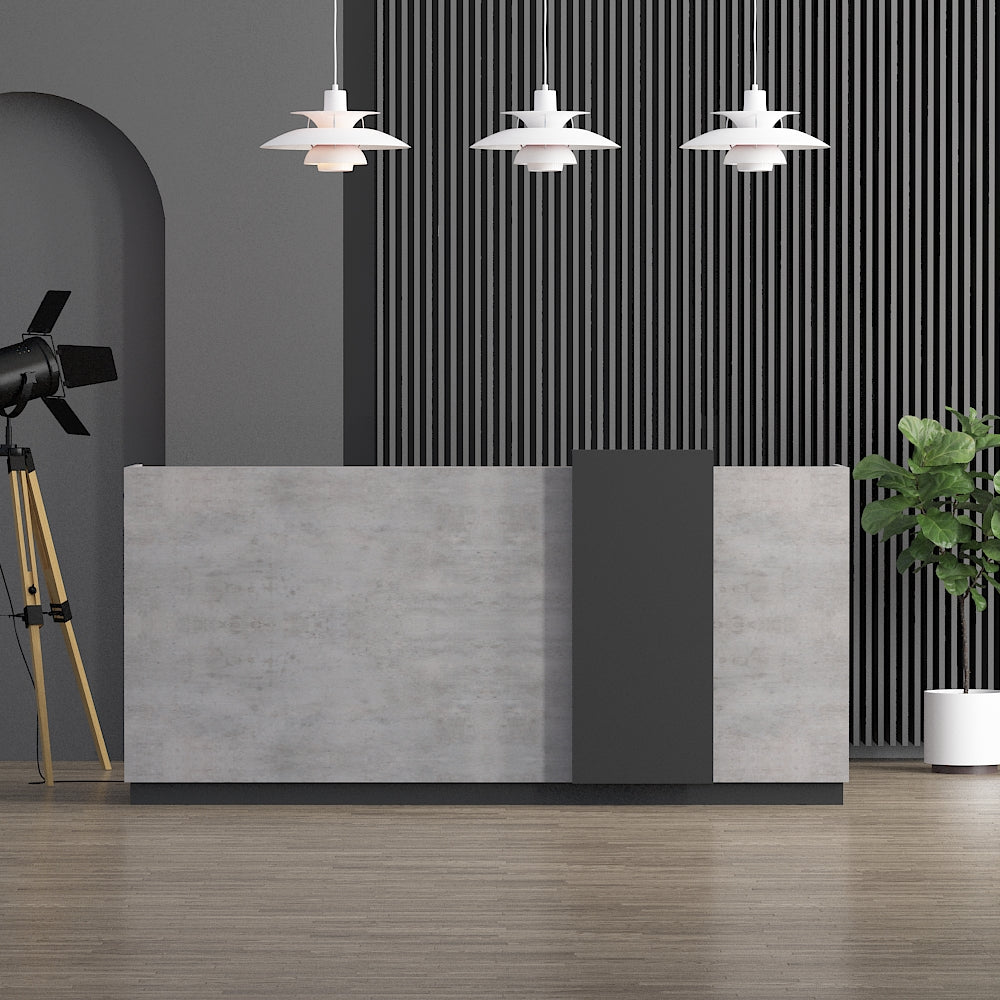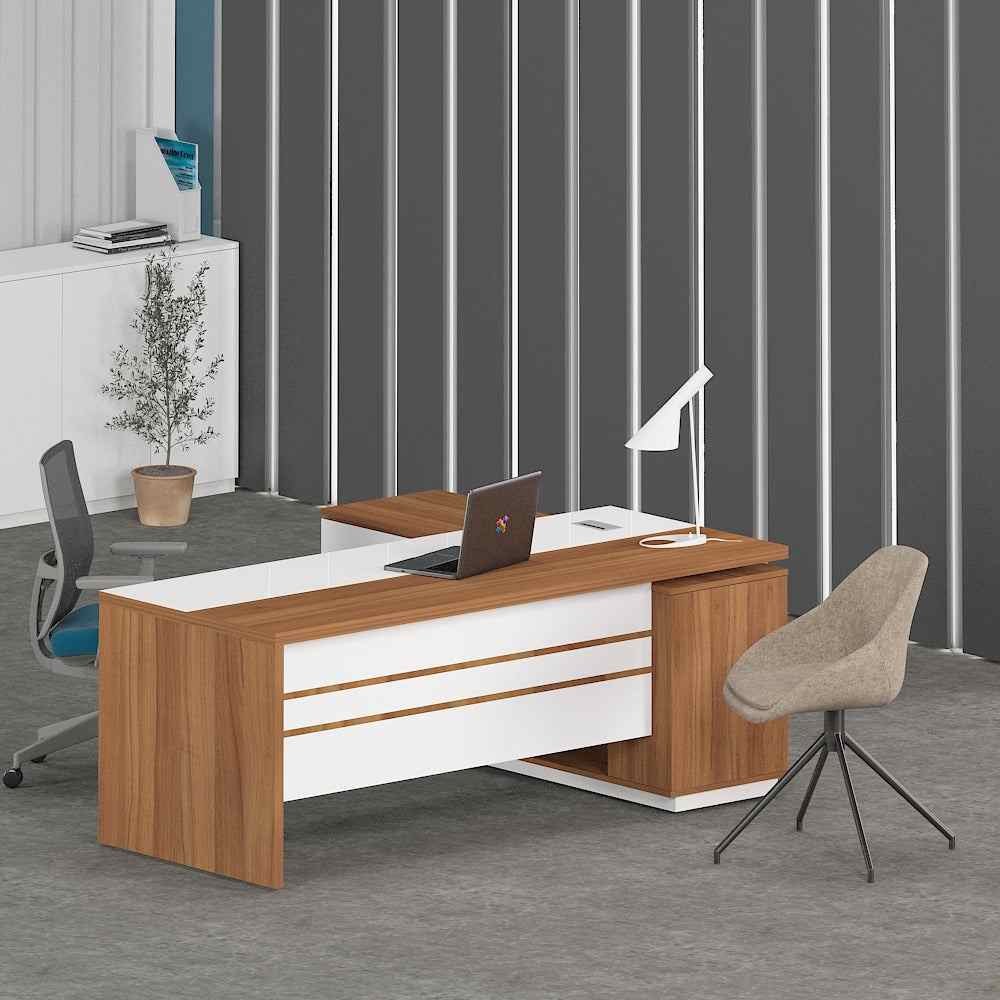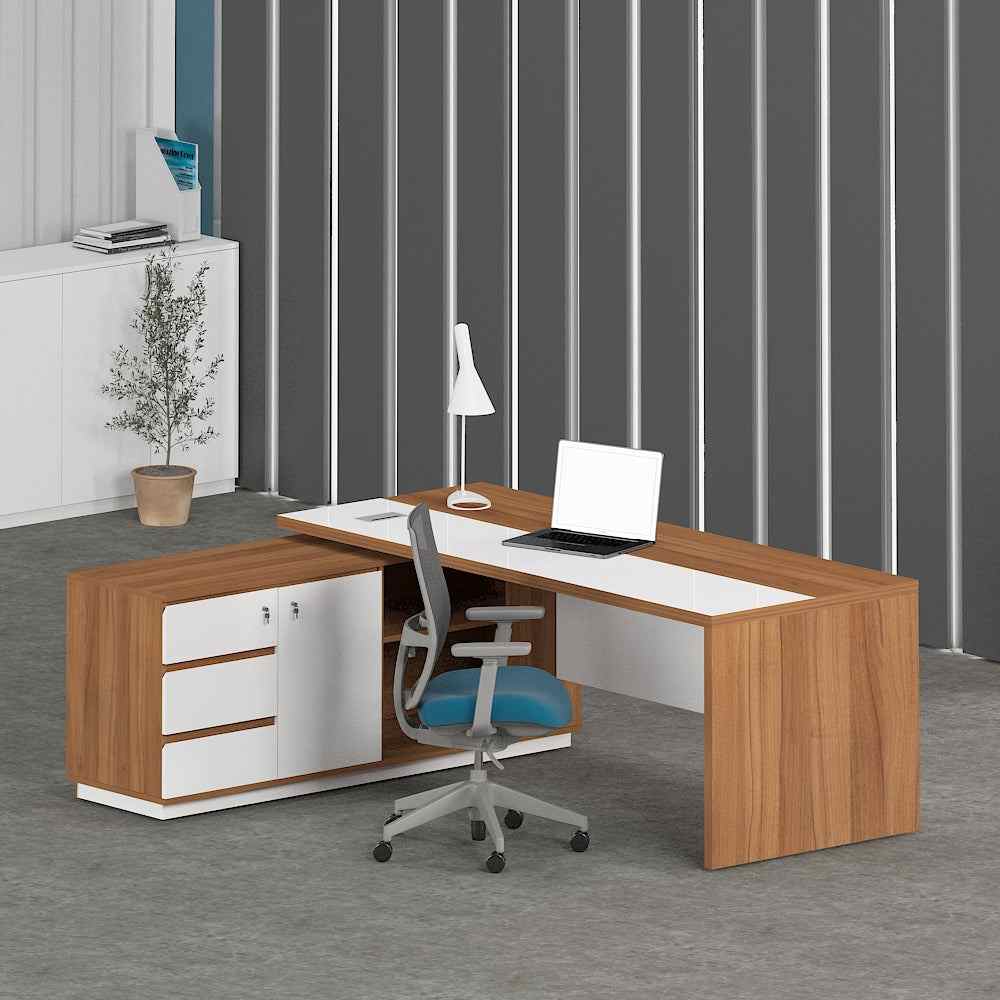In today's rapidly evolving business landscape, the office environment is undergoing a significant transformation. From traditional cubicles to open-plan layouts, the way we perceive and utilize office spaces has evolved drastically over the years.
1.1 The Evolution of Office Furniture
Gone are the days of rigid, uninspiring office furniture. The modern workspace demands innovation, flexibility, and style. As we delve into 2024, the realm of office furniture design is poised for groundbreaking developments.
1.2 Importance of Keeping Up with Trends
Staying abreast of the latest office furniture trends isn't merely about aesthetics; it's about creating environments that foster productivity, collaboration, and employee well-being.
Sustainability in Design
In an era increasingly conscious of environmental impact, sustainable design practices have gained prominence within the office furniture industry.
2.1 Eco-Friendly Materials
Materials like reclaimed wood, bamboo, and recycled plastics are becoming staples in office furniture production, offering both durability and eco-conscious appeal.
2.2 Renewable Energy Integration
Innovations in design now extend beyond materials to include energy-efficient features such as solar-powered lighting and ergonomic desk setups that promote active sitting.
Flexible and Agile Workspaces
The rise of remote work and agile methodologies has ushered in a new era of flexibility within office spaces.
3.1 Modular Furniture Solutions
Modular furniture systems allow for easy reconfiguration, enabling businesses to adapt quickly to changing needs and spatial requirements.
3.2 Adaptable Desk Systems
Height-adjustable desks and mobile workstations empower employees to personalize their workspace, promoting comfort and productivity.
Wellness-Centric Designs
Recognizing the importance of employee well-being, office furniture designers are prioritizing ergonomic solutions and biophilic design principles.
4.1 Ergonomic Seating Options
From lumbar-supporting chairs to standing desks, ergonomic furniture is designed to reduce strain and promote better posture, enhancing overall health and productivity.
4.2 Incorporation of Biophilic Elements
Biophilic design integrates natural elements such as greenery and natural light into office spaces, fostering a connection to the outdoors and improving mental well-being.
Technology Integration
As technology continues to shape the way we work, office furniture is evolving to accommodate our digital needs seamlessly.
5.1 Smart Furniture for Enhanced Productivity
Smart desks equipped with built-in charging ports and integrated IoT sensors streamline workflow and enhance connectivity, boosting productivity levels.
5.2 Wireless Charging Stations
The proliferation of wireless technology has led to the integration of wireless charging stations into desks and seating, eliminating clutter and promoting a clean, organized workspace.
Minimalist Aesthetics
In an age of information overload, minimalist design principles are gaining traction, offering simplicity and clarity in the workplace environment.
6.1 Sleek and Streamlined Designs
Clean lines, neutral color palettes, and uncluttered spaces characterize minimalist office furniture, creating an atmosphere of calm and focus.
6.2 Multi-Functional Pieces
Minimalist furniture often serves multiple purposes, maximizing space efficiency without sacrificing functionality or style.
Personalization and Customization
One size no longer fits all in the world of office furniture design. Businesses are seeking bespoke solutions that reflect their unique brand identity and corporate culture.
7.1 Tailored Furniture Solutions
Customizable furniture options allow businesses to tailor their workspace to suit specific needs and preferences, fostering a sense of ownership and pride among employees.
7.2 Collaborative Design Processes
Collaborative design approaches involve stakeholders in the creative process, ensuring that furniture choices align with organizational goals and values.
Innovative Storage Solutions
With the proliferation of digital tools and documents, effective storage solutions are more crucial than ever in maintaining a clutter-free workspace.
8.1 Space-Saving Furniture Designs
Compact storage solutions such as sliding drawers and foldable desks maximize floor space without compromising on storage capacity.
8.2 Hidden Storage Compartments
Innovative designs incorporate hidden storage compartments into furniture pieces, providing discreet storage solutions for personal belongings and office supplies.
Artisanal Craftsmanship
In a world dominated by mass production, artisanal craftsmanship adds a touch of authenticity and luxury to office furniture design.
9.1 Handcrafted Furniture Pieces
Handcrafted furniture pieces showcase the skill and artistry of master craftsmen, imbuing spaces with character and charm.
9.2 Emphasis on Unique Details
Attention to detail sets artisanal furniture apart, with intricate carvings, hand-applied finishes, and bespoke accents adding personality to office interiors.
Hybrid Work Environments
The boundary between office and home continues to blur, giving rise to hybrid work environments that accommodate both remote and in-person collaboration.
10.1 Home Office Integration
Office furniture designed for home use combines comfort and functionality, creating seamless transitions between work and leisure spaces.
10.2 Seamless Transition Spaces
Flexibility is key in hybrid work environments, with furniture solutions that easily adapt to changing work modes and preferences.
Global Influences
In an interconnected world, office furniture design is influenced by diverse cultural
perspectives and global trends, resulting in a rich tapestry of styles and aesthetics.
11.1 Cultural Inspirations in Design
Designers draw inspiration from a myriad of cultures, incorporating elements such as Japanese minimalism, Scandinavian simplicity, and Mediterranean warmth into office furniture design.
11.2 International Collaboration Trends
Cross-cultural collaboration between designers and manufacturers leads to innovative solutions that blend cultural influences seamlessly, catering to a diverse global audience.
Resimercial Designs
The line between residential and commercial spaces continues to blur, giving rise to resimercial design trends that prioritize comfort and homeliness in the workplace.
12.1 Blurring Lines Between Residential and Commercial Spaces
Resimercial design blurs the boundaries between home and office, creating inviting and comfortable work environments that feel more like living spaces.
12.2 Comfortable Work-Lounge Hybrids
Furniture pieces such as lounge chairs, cozy sofas, and communal dining tables create relaxed and informal settings within the office, fostering collaboration and creativity.
Branding Through Design
Office furniture serves as a tangible expression of a company's brand identity and values, offering opportunities for unique branding initiatives.
13.1 Corporate Identity Reflecting Furniture Choices
From color schemes to logo placements, office furniture choices can reinforce brand messaging and corporate identity, creating a cohesive and memorable workplace environment.
13.2 Branding Through Customized Elements
Customized furniture pieces featuring company logos, slogans, or motifs serve as powerful branding tools, leaving a lasting impression on clients, employees, and visitors alike.
Virtual Reality Showrooms
As technology continues to revolutionize the way we shop, virtual reality (VR) showrooms are transforming the office furniture buying experience.
14.1 Immersive Furniture Shopping Experiences
VR technology allows customers to explore virtual showrooms, visualize furniture setups, and even test out ergonomic features before making a purchase, enhancing convenience and decision-making.
14.2 Interactive Design Visualization
Interactive design tools enable users to customize furniture pieces in real-time, experimenting with different colors, materials, and configurations to find the perfect fit for their space.
Conclusion
The landscape of office furniture design is evolving at a rapid pace, driven by technological advancements, changing work paradigms, and a growing emphasis on sustainability and well-being. As we venture further into 2024, the office of the future will be defined by flexible, sustainable, and personalized furniture solutions that prioritize both functionality and aesthetics, creating environments that inspire creativity, foster collaboration, and enhance productivity.
FAQs (Frequently Asked Questions)
1. What are some key considerations when choosing office furniture for a small workspace?
- Answer: When working with limited space, prioritize multifunctional furniture pieces and opt for minimalist designs to create a sense of openness.
2. How can I incorporate biophilic design elements into my office space?
- Answer: Introduce plants, natural light, and organic materials such as wood and stone to evoke a connection to nature and promote well-being.
3. Are there any eco-friendly alternatives to traditional office furniture materials?
- Answer: Yes, materials like bamboo, recycled plastics, and reclaimed wood offer sustainable alternatives that reduce environmental impact.
4. What are some innovative storage solutions for a clutter-free workspace?
- Answer: Look for furniture pieces with built-in storage compartments, such as desks with sliding drawers or shelving units with concealed cabinets.
5. How can I create a collaborative work environment with my office furniture layout?
- Answer: Foster collaboration by incorporating communal workspaces, such as conference tables or breakout areas, where employees can gather and brainstorm ideas.












































